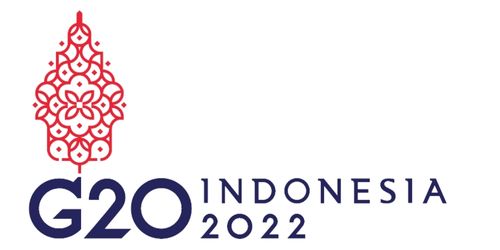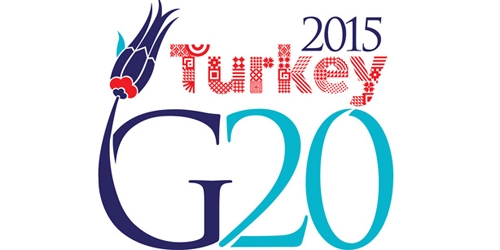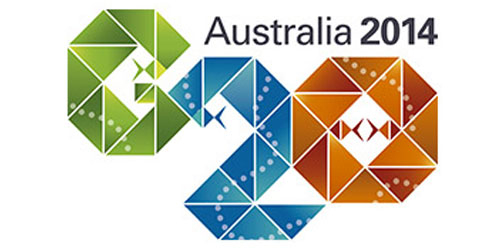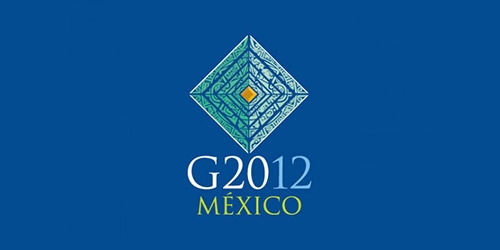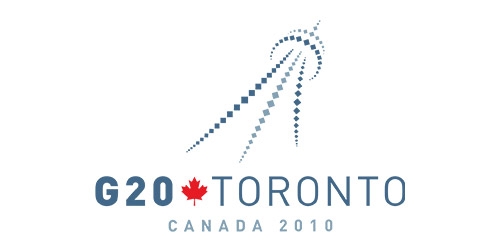Reports Delivered to the G20
The links below provide information on the various FSB progress reports on financial regulatory reforms that have been prepared for G20 Leaders’ Summits and for meetings of G20 Finance Ministers and Central Bank Governors.
G20 Leaders’ Summits
Click a G20 Leaders’ Summit below to see the delivered documents.
Meetings of G20 Finance Ministers and Central Bank Governors
FSB Chair’s letters to G20 Finance Ministers and Central Bank Governors
13 October 2025
FSB Chair Andrew Bailey calls for steadfast follow-through on agreed reforms in order to guarantee a resilient global financial system.
New FSB Chair Andrew Bailey tells G20 in Durban that international coordination is more important than ever.
FSB Chair Klaas Knot’s letter to G20 Finance Ministers and Central Bank Governors ahead of their April meeting in Washington DC.
24 February 2025
FSB Chair Klaas Knot’s letter to G20 Finance Ministers and Central Bank Governors ahead of their February meeting in Cape Town, South Africa.
22 October 2024
FSB Chair, Klaas Knot’s letter to the G20 Finance Ministers and Central Bank Governors ahead of their October meeting.
22 July 2024
FSB Chair submits progress report on work to address systemic risk in non-bank financial intermediation with his letter to G20 Finance Ministers and Central Bank Governors.
26 February 2024
FSB Chair Klaas Knot’s letter to G20 Finance Ministers and Central Bank Governors ahead of their February meeting in São Paolo, Brazil.
FSB Chair Klaas Knot’s letter to G20 Finance Ministers and Central Bank Governors ahead of their July meeting in Gandhinagar, India.
FSB Chair Klaas Knot’s letter to the G20 Finance Ministers and Central Bank Governors ahead of their April meeting in Washington DC.
20 February 2023
FSB Chair Klaas Knot’s letter to the G20 Finance Ministers and Central Bank Governors ahead of their February meeting in Bengaluru.
11 October 2022
FSB Chair Klaas Knot’s letter to the G20 Finance Ministers and Central Bank Governors ahead of their October meeting in Washington DC.
FSB Chair Klaas Knot’s letter to the G20 Finance Ministers and Central Bank Governors ahead of their July meeting in Bali.
FSB Chair’s letter discusses current challenges for financial stability following Russia’s invasion of Ukraine, and the FSB’s work to bolster financial system resilience.
17 February 2022
FSB Chair’s letter outlines the FSB’s policy work to promote global financial resilience in 2022.
11 October 2021
FSB Chair Randal K. Quarles’ letter to the G20 Finance Ministers and Central Bank Governors ahead of their October meeting.
FSB Chair Randal K. Quarles’ letter to the G20 Finance Ministers and Central Bank Governors ahead of their July meeting.
FSB Chair Randal K. Quarles’ letter to the G20 Finance Ministers and Central Bank Governors ahead of their April virtual meeting.
25 February 2021
FSB Chair updates Finance Ministers and Central Bank Governors on the FSB’s ambitious 2021 work plan, which seeks to address vulnerabilities directly related to COVID-19; and support strong, sustainable growth in a post-COVID world.
14 October 2020
FSB Chair Randal K. Quarles’ letter to the G20 ahead of their October virtual meeting.
FSB Chair Randal K. Quarles’ letter to the G20 ahead of their July virtual meeting.
FSB Chair Randal K. Quarles’ letter to the G20 ahead of their April virtual meeting.
19 February 2020
Randal K. Quarles’ letter to the G20 ahead of meetings in Riyadh.
13 October 2019
Randal K. Quarles’ letter to the G20 ahead of meetings in Washington D.C.
Letter sets out the FSB’s deliverables for the Japanese G20 Presidency.
FSB Chair provides an update on the FSB’s work and discusses current vulnerabilities in the financial system.
Letter from the FSB Chair to G20 Finance Ministers and Central Bank Governors March 2018 Buenos Aires meeting setting out the FSB agenda for 2018.
17 March 2017
Letter from the FSB Chair to G20 Finance Ministers and Central Bank Governors highlights progress on implementing reforms and 2017 priorities.
Letter from the FSB Chair to G20 Finance Ministers and Central Bank Governors provides an update on progress in advancing the FSB priorities for 2016.
27 February 2016
Letter from FSB Chair to G20 Finance Ministers and Central Bank Governors sets out the FSB’s work programme for 2016.
9 October 2015
The FSB Chair’s letter updates G20 Finance Ministers and Central Bank Governors on progress in advancing the FSB’s 2015 agenda.
17 April 2015
This letter from the FSB chair to G20 Finance Ministers and Central Bank Governors ahead of their meeting in Washington in April 2015 provides an update on progress in taking forward the FSB’s financial regulation agenda for 2015.
FSB Chair’s Letter to G20 on Financial Reforms – Finishing the Post-Crisis Agenda and Moving Forward
11 February 2015
This letter by FSB Chair sets out the FSB’s work programme to advance during the Turkish G20 Presidency in 2015 the priorities for the next phase of financial reforms.
FSB Chair’s Letter to G20 on Financial Reforms – Finishing the Post-Crisis Agenda and Moving Forward
10 February 2015
This letter by FSB Chair sets out the FSB’s work programme to advance during the Turkish G20 Presidency in 2015 the priorities for the next phase of financial reforms.
21 September 2014
FSB Chair provided an update to the G20 on progress toward correcting the fault lines that led to the global crisis and to build safer, more resilient sources of finance to serve better the needs of the real economy.
11 April 2014
This letter summarises the progress to complete the programme of reform for the Brisbane summit, begins to look ahead to plans for implementation beyond Brisbane, and summarises the initial findings of the FSB review of representation.
FSB Chair reviews what remains to complete the core elements of reform, and then outlines the characteristics of financial supervision and regulation needed to realise fully the benefits of an open, integrated global financial system.
FSB Chair reports on progress in three key areas of reform to create a more resilient global financial system. They include implementation of the Basel III capital and liquidity requirements, implementation of reforms to resolution regimes and implementation of OTC derivatives reforms.
FSB Chair reviews the progress made in implementation of financial regulatory reforms, provides an assessment of the effect of the G20 financial regulatory programme on the availability of long term investment finance, and highlights FSB’s priorities and work plans.
This letter summarises the progress being made in the priority areas identified by the G20 Leaders. These include (i) building resilient financial institutions; (ii) ending “too big to fail”; (iii) strengthening the oversight and regulation of shadow banking activities; and (iv) creating continuous core markets by completing OTC derivatives and related reforms.
FSB Chair provided an update to the G20 on progress towards (i) building resilient financial institutions; (ii) ending “too big to fail”; (iii) strengthening the oversight and regulation of shadow banking activities; (iv) completing OTC derivatives and other reforms to create continuous core markets; and (v) implementing agreed G20 reforms in a timely and consistent manner.
15 April 2011
This report provides an overview of work underway to implement the G20 recommendations for strengthening financial stability. It focuses on international policy development and implementation that has taken place since the G20 Finance Ministers and Governors meeting in February 2011.
18 February 2011
This report provides an overview of work underway to implement the G20 recommendations for strengthening financial stability. It focuses on international policy development and implementation that has taken place since the G20 Seoul Summit in November 2010.
23 April 2010
FSB Chair’s Letter to G20 Ministers and Governors.
19 April 2010
This report describes the measures that have been taken and other progress made to implement the recommendations made by the G20 and the FSB for strengthening financial stability since the November 2009 meeting of G20 Finance Ministers and Central Bank Governors at St Andrews.
7 November 2009
This report describes the measures that have been taken and other progress made since the Pittsburgh Summit to implement the recommendations made by the G20 and the FSB for strengthening financial stability.



